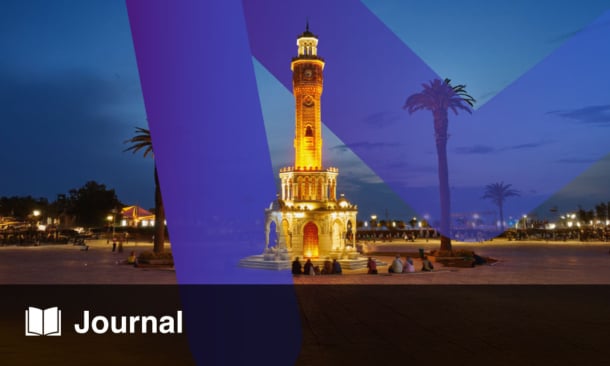Dame Clare Gerada DBE | Royal College of General Practitioners President, Clinical Chair of the NHS Assembly, Senior Medical Advisor to the Department of Health, and Director of Primary Care for the National Clinical Governance, London, UK
Citation: EMJ. 2023; DOI/10.33590/emj/10303143. https://doi.org/10.33590/emj/10303143.
![]()
You initially trained in psychiatry, and focused on treating patients with addiction. In the time you have worked in this field, how do you think the approach of the medical community has changed and improved?
When I started out way back in the 1980s, addiction was predominantly dealt with by psychiatrists in hospitals, psychiatrists in the private sector, and a few general practitioners (GP) and psychiatrists in private practice. It was not systematically delivered to high standards, there was little use of evidence-based interventions, and we did not have shared care. Now, the mainstay of addictions is carried out by GPs in partnership with the third sector, so the voluntary sector. Paradoxically, psychiatry has less of a part to play. I am not saying that is a good thing, but that is what has changed. GPs now do the mainstay of chronic disease management, and addiction is a chronic disease; as with other chronic diseases, it has moved into general practice. Sadly, the resources have not also moved with it! However, there is much safer and better care now than when I started out.
Do you feel there are any misconceptions about the role of a GP, and what do you think can be done to address these misconceptions?
I think the GP’s role has essentially become that of a hospital doctor in the community. This morning, I saw 18 patients, and had to move between being a consultant paediatrician, cardiologist, respiratory physician, psychiatrist, and so on, sometimes in the same patient. Yet, I had to do each of those in under 10 minutes, and on my own. My job as a GP, which is essentially first contact care and managing risk and uncertainty, is rapidly playing second place in managing complexity and chronic disease. The misconception is that while the GP is well placed within the community, this does not mean we should be doing all the work. For example, approximately 1 million children, every day, do not go to school, mostly due to minor illness. If we were allowed to do our job properly, parents would have the space, and we would have the space and the time to help them answer whether their child is too sick, or well enough to go to school. But we cannot do this, because we are managing complexity, and have no time to offer what I think is basic general practice. And I think that is where the misconception is: people do not understand my skills. I am perfectly skilled at managing chronic schizophrenia, depression, or respiratory disease. But my real skill is managing risk and uncertainty, and answering that basic question 10,000 times an hour (which is how many children consult with their GP in London): “Is my child well enough to go to school?” And GPs can do that because we have skills in dealing with children who are well, as well as children who are sick. I keep reminding people that I am not a hospital doctor in disguise. I am a GP with skills in generalism, uncertainty, and continuity.
What do you feel are the greatest challenges currently facing GPs, both in the UK and across the world?
Across the world, there are not enough GPs. The industrialisation of healthcare has increased the number of ultra-specialists, with fewer and fewer generalists able to deal with the whole person. The challenge here is that nobody is happy because the ultra-specialist is not happy just seeing a small part of the human body, and generalists are not happy at having to deal with so much complexity. The challenge also facing GPs across the whole world is the number of us, as there are fewer and fewer of us, and we are doing more and more. But it is also the broader issue of the industrialisation of healthcare, which is turning healthcare into a production line, rather than a relationship between a patient and their doctor.
In 2022, you authored a paper entitled, ‘Doctors’ identity and barriers to seeking care when unwell’. What were the findings of this paper, and how do you think these challenges can be addressed moving forwards?
I hypothesise that everybody has an identity; in fact we have many, depending on our current role or position. For example, your identity now is that of a journalist, but you might also be a parent, and as such your identity is fluid depending on your situation. The identity of a doctor is one of the strongest identities. It has formed even before starting medical school, as those wanting to study medicine have preconceived ideas of what it is to be a doctor, and try and emulate them (studying hard at school, being altruistic by working for charitable organisations, and so on). Once in training, the identity is strengthened by our long training, where we don’t really mix with those outside medicine. A doctor’s identity is made up of two parts; it is made up of our individual identity, that is, ‘I am a doctor’, but also our group identity, the identity of medicine. It is a very strong identity, and on the whole, there is little space for another identity. Even an identity as a mother gets pushed out. Also, what gets denied is the identity of being a patient, as the identity of a doctor means denying vulnerability; it is those on the other side of the consulting room who are vulnerable, and have illnesses. We wear magic white coats because that is what our identity tells us. And, of course, we do not wear magic white coats, and we get ill, but it both prevents us from seeking help, and creates a sense of invincibility. If you ask me what I am, I am a doctor. It is not just a job, it is something I am. So that is my hypothesis. I wrote the book ‘Beneath the White Coat: Doctors, Their Minds and Mental Health’, which elucidates all of this.
You are the current President, and previous Chair, of the Royal College of General Practitioners (RCGP). Can you tell our readers a little bit about the work the RCGP does, and what these roles mean to you?
I am proud that I am the second woman to hold the Chair and the President. I am also very proud of my college. It is the largest, but one of the youngest, of all the Royal Colleges, and has achieved an awful lot. It has achieved, in front of the scenes, the development of our education and training to support us professionally, but also, behind the scenes, stopping things from happening, which therefore never see the light of day, such as having to sit a compulsory exam every 5 years, which was muted as part of revalidation requirements. This will end for me this year on the 17th of November, after 25 continuous years on council. It is a poignant moment, but I am ready to leave and see what else comes next. The college has provided me with support, friends, and opportunities to develop my career, and it has probably been the most important part of my professional life.
How do you feel that the development and integration of technology into primary care has changed the field? Has this resulted in a benefit for doctors and patients in terms of quality of care?
I think it is vital that we have a mix of face-to-face and remote consultations, and I think the future will lean towards remote-first. Think of banking. The idea of going into a bank every time you want to put a cheque in, or get money, has gone out with the ark, and the same is going to happen to medicine. I am a front-runner on technology, and I used email with my patients and their relatives 20 years ago, when email was still a sort of wind-up clock with no guidance. I also used social media to communicate with people on a broader scale. My practice has developed a tool called e-consult, a digital triage tool, and it is life-changing for me as a doctor because I can understand what might be wrong with my patients before I consult with them. I can start thinking about how much time I might need with them, whether I need more information, or need to ask for help. And they themselves can access me in a much easier way. I have also started to experiment with artificial intelligence (AI). I have been using ChatGPT for about 3–4 months personally to help me research things, but I have also started using it clinically when I have time, and when I consult remotely. I do not think, for now, it is helpful for the patient to use, as the AI response always ends in asking the patient to consult with their GP or doctor. But for me, it is helpful because it helps me think of things I had not thought of. I think we are about 18 months–2 years away from a healthcare transformation. But we do need funding, because we need to get double running systems. So, we have had the cottage industry, the industrial revolution, and now we have the digital revolution.
You were awarded an MBE for your services to medicine and substance misuse in the Millennium Birthday Honours. Can you tell our readers a little more about the amazing work you did you achieve that award?
In 2000, I was leading drug misuse for the Department of Health, and I think I saved more lives doing that than anything else I have ever done. I set up a shared care scheme, got some funding to train GPs, as well as funding to do supervised ingestion for drug users on methadone, and worked really hard in transforming the way substance misuse is managed. I got a damehood in 2020 for my services to physician health by setting up a service for the mental health of doctors and dentists. I set up practitioner health, which has now seen about 17,000 health professionals with mental health problems. So top and tail of the two ends of my career, I am really very proud of that.
You are reaching the end of your tenure as RCGP President. Where can we expect to see your focus lie in the coming years?
I have always done two or three jobs simultaneously. I am currently running a gambling service for problem gamblers. I am also president of the Royal College of GPs, and I am patron of a charity called Doctors in Distress, as well as doing my clinical work in practice. I am going to be a grandmother in November, and my other son is getting married very shortly. So, I do see a real change in my life and my personal life going forward. But I have applied to support Jersey healthcare, and I am also going to carry on doing the gambling support, so I won’t be redundant, that’s for sure.







